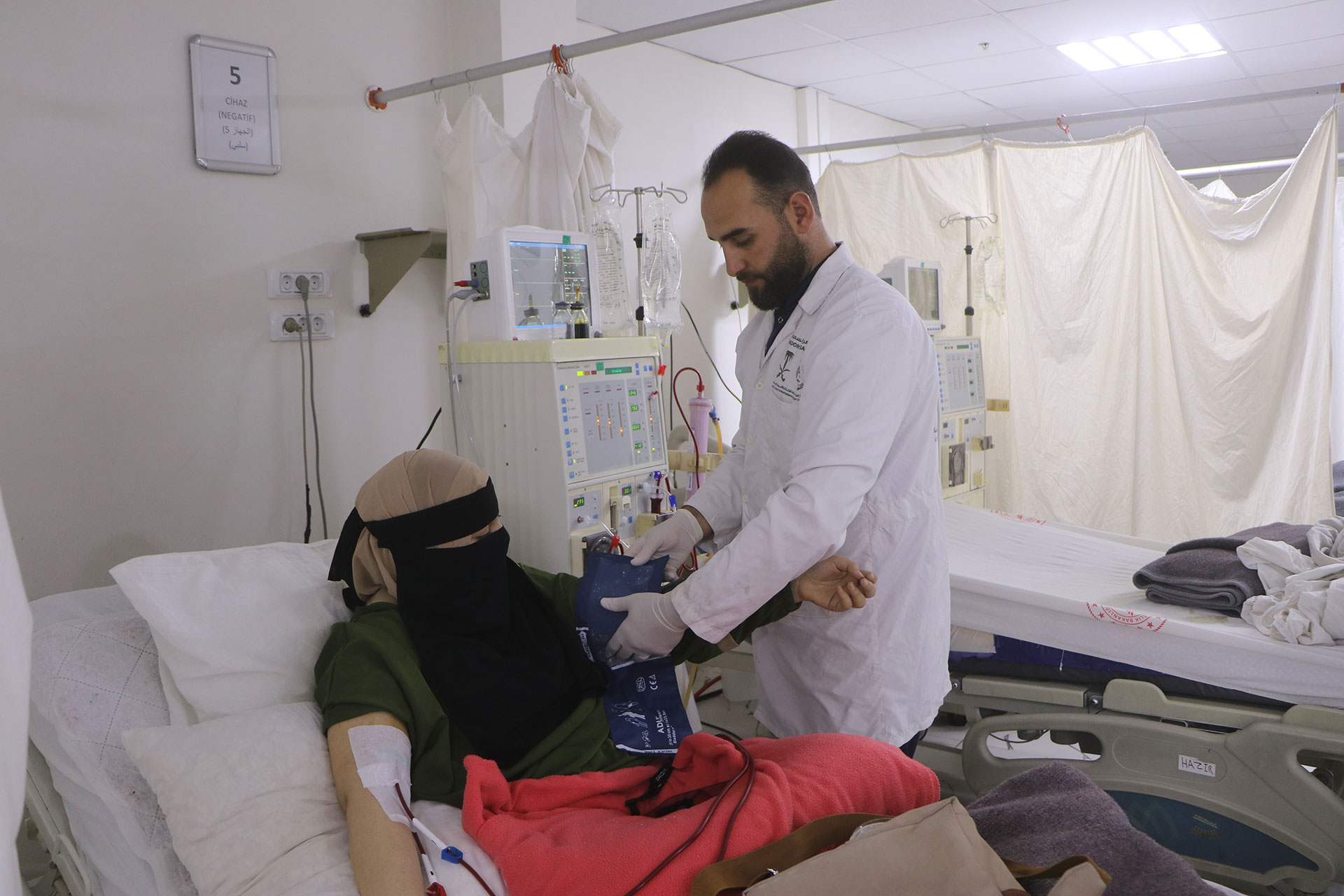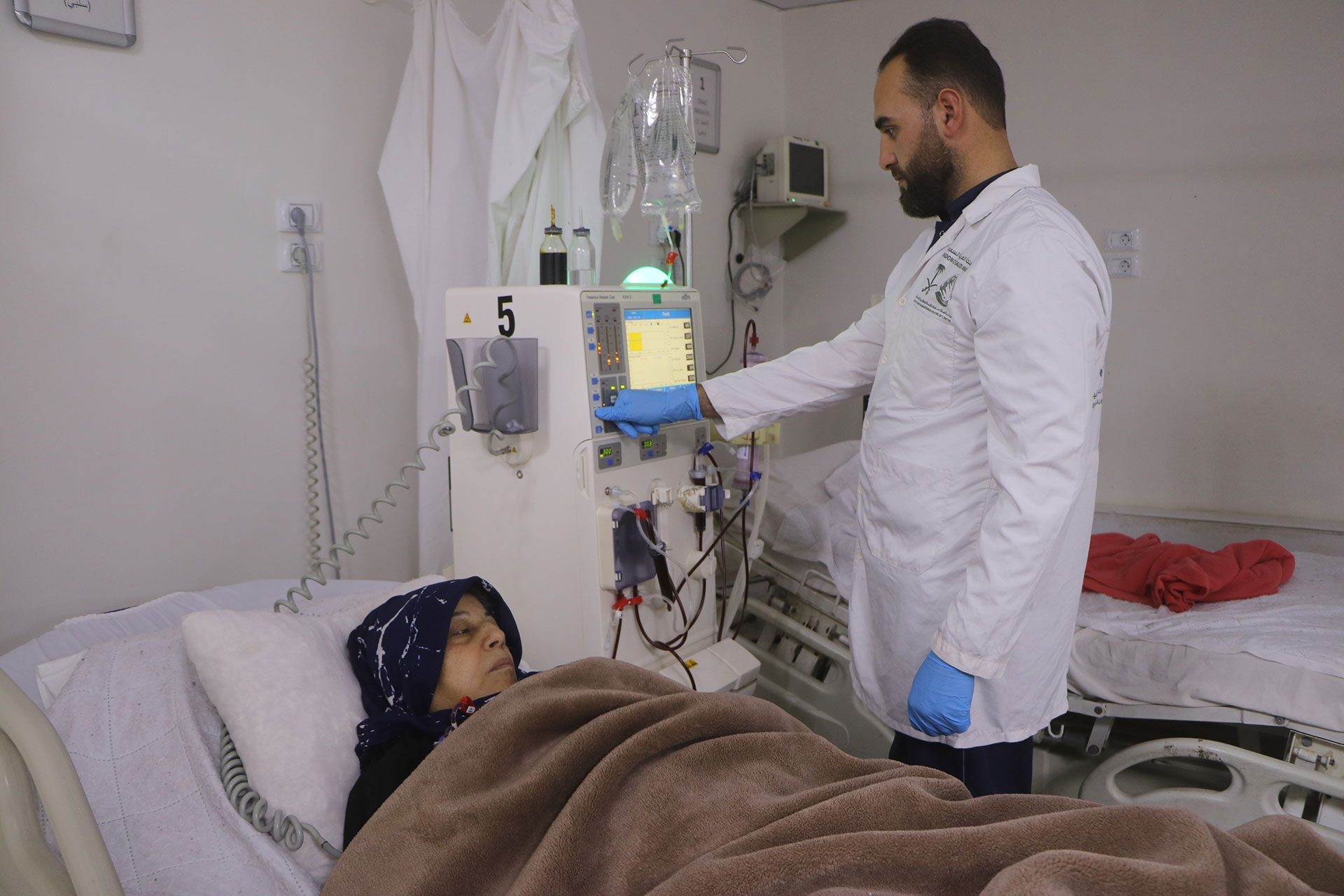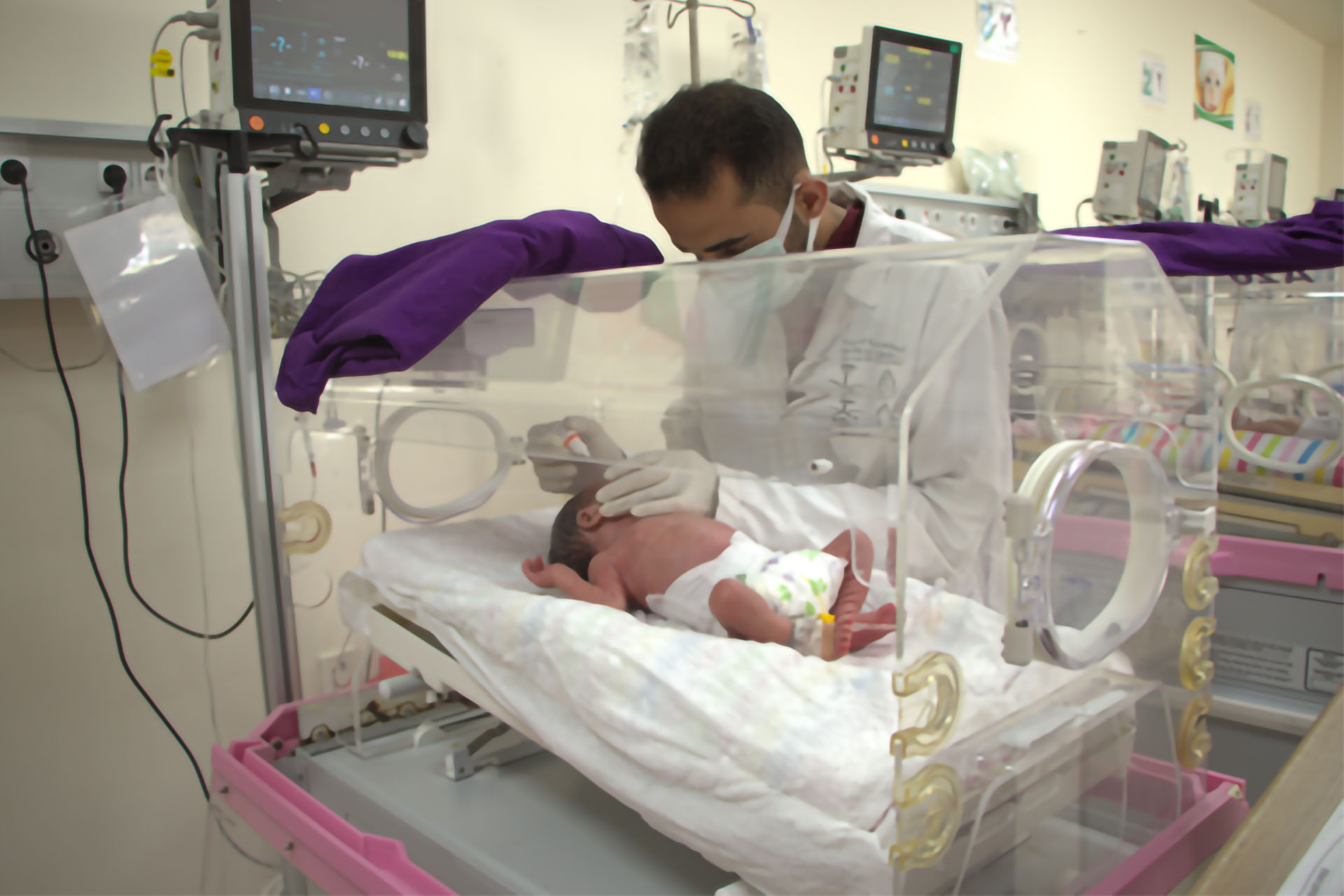26 November 2025, Aleppo, Syrian Arab Republic – For many families across northern Aleppo, weekly visits to their local hospital are a vital lifeline — whether for lifesaving dialysis sessions or for the care of newborns recovering from early illness. At Azaz National Hospital and Marea National Hospital, health workers provide steady, reliable services that help patients manage long-term conditions and protect infants during their most vulnerable days.
 Abd al-Rouf Saqqar supports patient Sireen Assi during a dialysis session at Azaz National Hospital. Photo credit: WHO
Abd al-Rouf Saqqar supports patient Sireen Assi during a dialysis session at Azaz National Hospital. Photo credit: WHO
At Azaz National Hospital, Sireen Assi arrives twice a week for dialysis. Living with kidney failure has meant years of regular treatment, but the routine brings stability and keeps her symptoms under control. Nurse Abd al-Rouf Saqqar, who oversees her sessions, says familiarity and consistency matter.
“Dialysis is not easy for any patient,” he explains. “Regular attendance helps us stabilise their condition and prevent complications. We try to make every session as comfortable as possible.”
 Sabah Al-Ahmad receives dialysis care from nurse Abd al-Rouf Saqqar at Azaz National Hospital. Photo credit: WHO
Sabah Al-Ahmad receives dialysis care from nurse Abd al-Rouf Saqqar at Azaz National Hospital. Photo credit: WHO
In the same unit, Sabah Al-Ahmad receives her twice-weekly treatment under the guidance of the same team. For her, the predictability of care makes a significant difference.
“Many of our patients have been coming for years,” says Abd al-Rouf. “We know their routines, their concerns, and how their bodies respond to treatment. That trust makes the care smoother and safer.”
 Ahmad Al-Taweel examines infant Mohammad Abbas inside the neonatal unit at Marea National Hospital. Photo credit: WHO
Ahmad Al-Taweel examines infant Mohammad Abbas inside the neonatal unit at Marea National Hospital. Photo credit: WHO
Further south, at Marea National Hospital, Mohammad Abbas was admitted to the neonatal unit with a skin condition requiring close observation and specialized care. Nurse Ahmad Al-Taweel and the incubator unit team monitored him closely, adjusted treatment as needed, and supported his family throughout his stay.
“Skin conditions in newborns need close observation,” says Ahmad. “We monitor the child hour by hour and keep the parents informed. When a baby improves, everyone in the unit feels it.”
Whether in dialysis wards or neonatal units, hospitals in Azaz and Marea provide continuous care that families depend on – week after week, month after month.
Services at both hospitals are delivered in coordination with the Ministry of Health and implemented on the ground through health partners, ensuring that families in northern Aleppo can access essential care close to home.
Since late 2024, support from the King Salman Humanitarian Aid and Relief Centre (KSrelief) has helped WHO keep 50 health facilities running across Aleppo and Idlib, enabling uninterrupted access to services such as dialysis, neonatal care and other essential health interventions.








